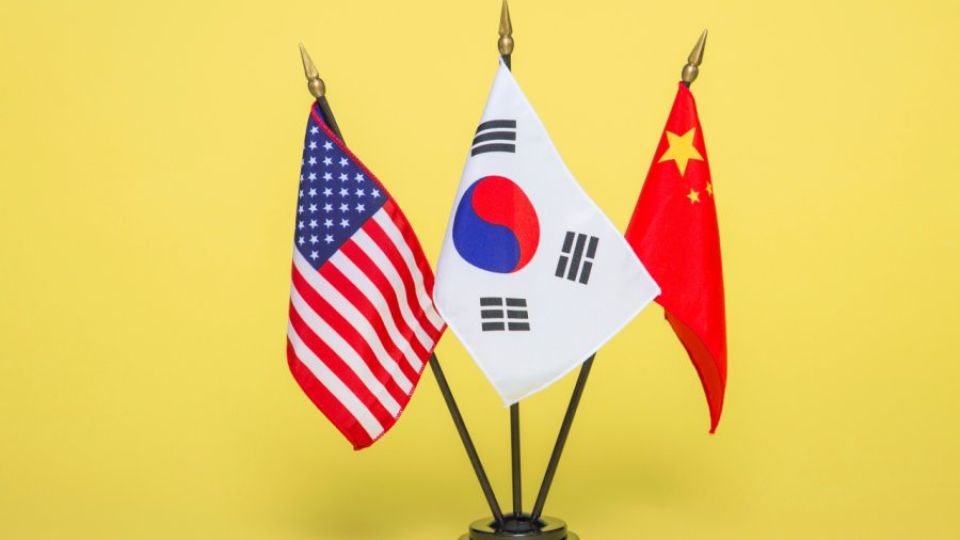May 4, 2023
SEOUL – The Yoon Suk Yeol administration is working to restart regular three-way talks involving Japan and China, preferably before the end of the year, according to a senior Foreign Ministry official in Seoul with direct knowledge of the matter on Wednesday.
South Korea, this year’s host, is making preparations, the official said, adding however it is still too early to narrow down potential dates for the summit, which will bring together President Yoon and his Japanese and Chinese counterparts for discussions on trilateral ties.
The meeting, hosted by the three countries taking turns, has taken place eight times since 2008 but has been put on hold since 2019, largely because of COVID-19 travel curbs. Strained Seoul-Tokyo ties had also played a role in the suspension.
“On the preparations for the summit, there isn’t much visible difference in the way we communicate with our Japanese counterparts. The reception is still the same after the March summit,” the official said, referring to Yoon’s Tokyo visit from March 16-17, where the Korean and Japanese leaders vowed for better ties by moving past a historical dispute involving Japan’s 1910-45 colonial rule on the Korean Peninsula.
The feud over agreeing to right kind of amends — a proper apology and compensation — to Koreans forced to work for Japanese firms during the colonial period had plunged ties to a fresh low. Seoul has decided to pay the victims on its own without involving Japanese companies, which had refused to recognize a 2018 Korean court ruling that held them liable for damages.
Reciprocating Yoon’s Tokyo tour, Japanese Prime Minister Fumio Kishida is visiting Seoul from Sunday to Monday. Many hope the Japanese leader would roll out something “sincere” during the trip — a public apology for colonial rights abuses — to carry on the momentum to build on ties, though chances are slim.
But experts say closer Seoul-Tokyo ties will not necessarily lead to tighter three-way relations that include Beijing.
“For China, it’ll be two against one,” said Chung Jae-hung, director of the Center for Chinese Studies at the Sejong Institute, referring to moves by Korea and Japan to get closer to the US as its two biggest Asian allies step up efforts that China sees as threatening to its “core interests.”
Last month, Yoon openly referred to China’s claims to Taiwan as a global issue, saying he opposes any unilateral attempts to change the status quo on Taiwan by force. Beijing routinely claims it could take over the self-ruled democratic island by force if necessary. Washington says it will come to the rescue in the case of an invasion.
Chinese Foreign Minister Qin Gang essentially fired back at Yoon, saying “Those playing with fire on Taiwan will get themselves burned” at a local forum late last month. The issue involving Taiwan, Qin added, is a matter of China’s “core interests” that require a response to any violations.
“The three-way meeting to be held in Seoul will fall far short of unveiling a concrete action plan on even economic issues as far as I see it,” Chung added, saying a US-led alliance on semiconductors that includes Korea as well as Japan could hamper any “meaningful three-way cooperation” on the economic front, an area Chung says used to be “relatively conflict-free” before an intensifying US-China rivalry.
In February, Chip 4 — an informal name for the alliance — held its first video meeting of senior officials from the US, Korea, Japan and Taiwan. They discussed bolstering resilience of global supply chains. China has said those countries should avoid causing any market fragmentation and that any framework they agree on should not be discriminatory.
Meanwhile, Chung added for better three-way ties to develop through the Korea-Japan-China meeting, the Yoon administration needs to rethink how it currently manages Seoul-Beijing ties.
“Seoul does not need to stand at the forefront” for a cause Washington is and should be more heavily invested in, he said, warning of “being the direct victim of the US-China fight.”


